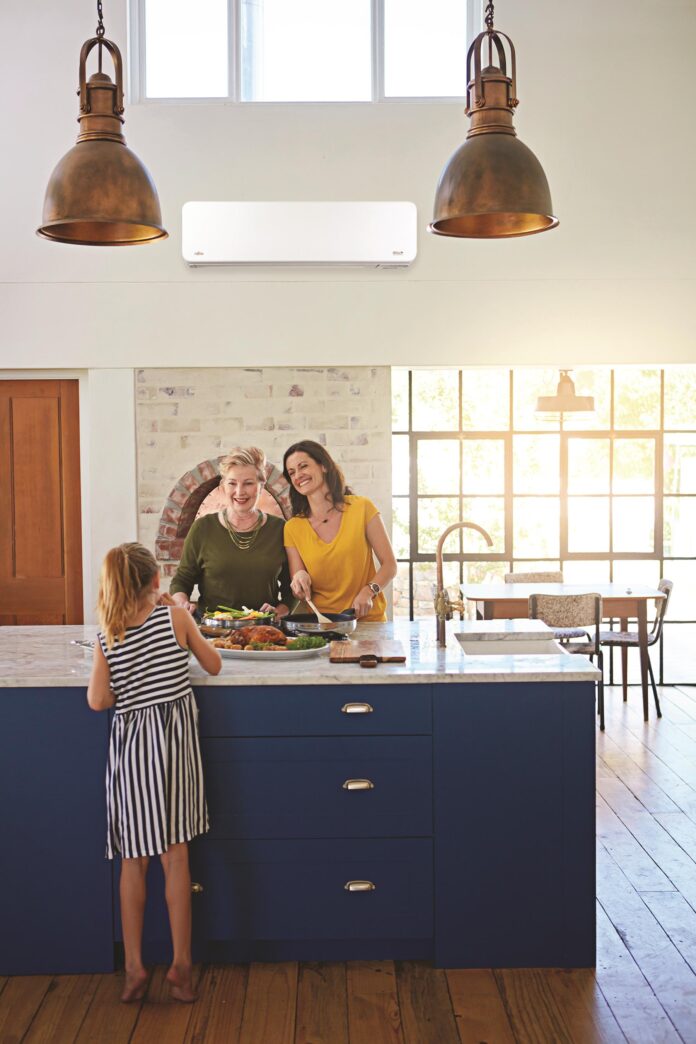(NewsUSA) – Summer 2022 promises to be particularly challenging as it relates to America’s home energy costs due to a confluence of three events – rising temperatures, costs and demand – resulting in homeowners facing an intensified fight to keep bills at bay.
– Summer 2022 promises to be particularly challenging as it relates to America’s home energy costs due to a confluence of three events – rising temperatures, costs and demand – resulting in homeowners facing an intensified fight to keep bills at bay.
The Farmer’s Almanac predicts a “Sizzling Summer Ahead” stating this summer weather is going to be remembered as a hot one nationwide. Second, homeowners are experiencing a “rate shock” as the global energy crisis drives up prices with energy costs up 25.6% year over year, according to the Consumer Price Index. Third, there is surging demand due to our post-pandemic “hybrid home” dynamic. Studies support this trend with 83% of workers believing a hybrid model would be optimal going forward, according to an Accenture survey, and 87% of managers believing working from home is the future, according to Remote-How research.
The good news is that families can offset this “Utility Bill Trifecta” by following a few simple tips. With home heating and cooling accounting for nearly half of home energy use, small steps can go a long way.
* Ease Into Electric: According to Columbia University’s Earth Institute, electric systems are a solution to decarbonize home climate control. Among the most energy-efficient heating and cooling products, electricity-powered ductless mini-split systems, offered by companies including Fujitsu General America, can save as much as 25 percent on your energy bill. Mini-splits use thin copper tubing to pump refrigerant from an outdoor compressor directly into an indoor air-handling unit, where the air is quietly distributed to the interior space.
* Get “Smart” About Climate Control: When it comes to smart home temperature control, there are Smart HVAC Systems and Smart Thermostats. Smart HVAC systems have built-in Wi-Fi and can be controlled directly without additional equipment. Smart Home Thermostats create “smart” systems by enabling remote temperature control via a mobile or Internet-con-nected device or voice-operated home automation system.
* Voice Your Preference: Take control of your comfort. Most HVAC manufacturers offer apps that enable systems to be controlled from anywhere using a mobile device. Voice-control capability uses digital assistants, like Amazon Alexa or Google Home, to verbally dictate home temperatures. Easily controlling the temperature more closely, allows homeowners to be more comfortable and improve energy savings.
* Find Your Efficient Comfort Zone: Many of us live in homes designed for bigger families, but have yet to downsize. If you find yourself using a fraction of your home on a regular basis, consider upgrading to a zoned ducted, or ductless system. That will allow you to save energy heating and cooling spaces where you and your family don’t spend a lot of time. This will multiply savings as you’re not only needing less cooling but you also gain from a more efficient system in the spaces you do still use.
* Try Low-tech Fixes: Simple changes can have a big impact. Try to use heat-producing appliances — stoves, irons and dryers — at night or early morning. Switch to LED light bulbs instead of incandescent bulbs – which consume 90% more power. Seal air leaks around windows, doors, and places where pipes and wires come through walls. Check existing caulking and weather-stripping for gaps or cracks.
Curbing energy bill costs can be more than just a summer dream. If a new system is right for you, many Fujitsu systems with the Energy Star rating are more than twice as efficient as the minimum standard set by the government.
My Comments to the article: There are additional measures that can be taken depending on when your home was built. Homes are constructed meeting Residential Building Codes enforced by the local municipalities. The codes change every 3 years. States are not required to adopt building code changes. Pennsylvania has been operating under the 2009 building code until recently. The 2018 Building Code was adopted by Pennsylvania February 14, 2022. The municipalities can adopt the new code change at any time up to August 14th when it becomes mandatory.
In some cases, homes were built prior to the adoption of the codes and others have been constructed under above code programs like the Energy Star Program. The energy efficiency of a home depends on what code the home was constructed under, any homeowner improvements and home maintenance.
Prior to entering Real Estate my company was part of an award-winning team advising, inspecting and testing Western Pennsylvania builders for the government Energy Star program.
Our Real Estate team consists of specialists. We can determine if your home was Energy Star rated (a feature that indicates a higher value than similar homes), if not, advise you how to make your home more energy efficient to create a market advantage or just advise you how to make your home more energy efficient even if you are not looking to sell your home. As a homebuyer we will share this knowledge along with home condition observations since since I am the showing agent for the Sharon St.Clair Real Estate Team at eXp Realty and a Master Home Inspector. Call the Sharon St. Clair team at 724- 503- 0014 to discuss how we can help you. (Comments are that of Don Minehart)




